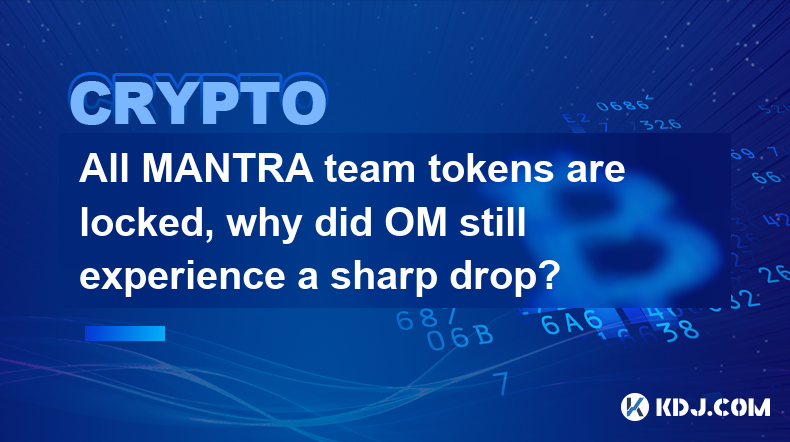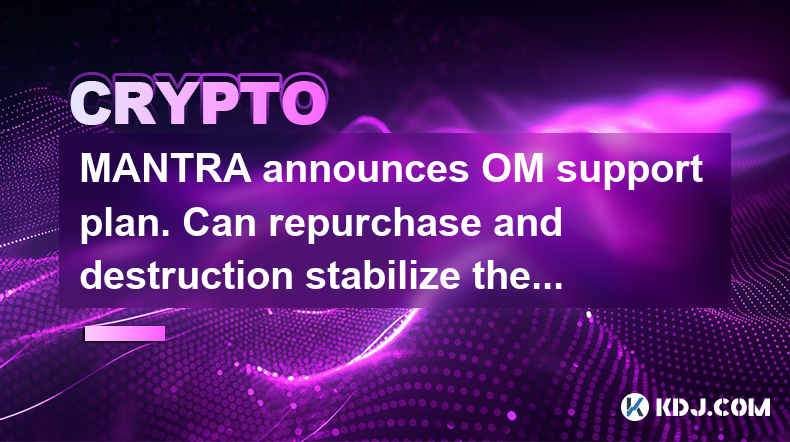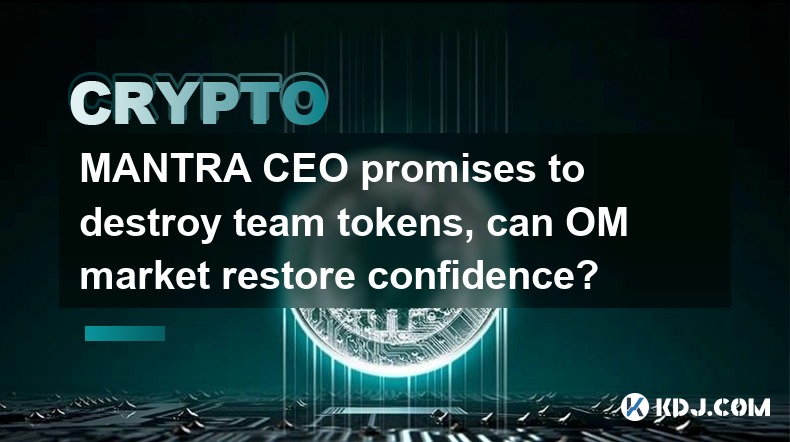-
 Bitcoin
Bitcoin $88,629.0112
1.53% -
 Ethereum
Ethereum $1,633.3416
0.24% -
 Tether USDt
Tether USDt $1.0000
0.01% -
 XRP
XRP $2.0979
-1.08% -
 BNB
BNB $605.5535
0.62% -
 Solana
Solana $140.2764
0.66% -
 USDC
USDC $1.0000
0.01% -
 Dogecoin
Dogecoin $0.1643
1.41% -
 TRON
TRON $0.2438
0.47% -
 Cardano
Cardano $0.6391
-0.43% -
 Chainlink
Chainlink $13.4401
-0.21% -
 Avalanche
Avalanche $20.3874
-0.96% -
 UNUS SED LEO
UNUS SED LEO $8.8373
-2.11% -
 Stellar
Stellar $0.2496
-3.26% -
 Sui
Sui $2.3313
3.08% -
 Shiba Inu
Shiba Inu $0.0...01260
-0.18% -
 Hedera
Hedera $0.1732
1.55% -
 Toncoin
Toncoin $2.9117
-3.34% -
 Bitcoin Cash
Bitcoin Cash $346.5808
1.81% -
 Hyperliquid
Hyperliquid $18.4964
3.15% -
 Litecoin
Litecoin $79.8162
-0.77% -
 Polkadot
Polkadot $3.7801
-3.27% -
 Dai
Dai $1.0000
0.00% -
 Bitget Token
Bitget Token $4.4558
-0.32% -
 Ethena USDe
Ethena USDe $0.9992
0.01% -
 Pi
Pi $0.6369
0.62% -
 Monero
Monero $217.7312
1.28% -
 Pepe
Pepe $0.0...08147
2.99% -
 Uniswap
Uniswap $5.4346
0.09% -
 Aptos
Aptos $4.9660
-4.00%
How do different countries have different regulatory policies on Bitcoin payment platforms?
Regulatory policies on Bitcoin payment platforms vary widely by country, impacting how Bitcoin is used and the operational requirements for platforms facilitating transactions.
Apr 20, 2025 at 10:56 am

Different countries exhibit a wide range of regulatory policies when it comes to Bitcoin payment platforms, reflecting diverse attitudes towards cryptocurrencies and their integration into the financial system. These regulations can impact everything from how Bitcoin can be used as a payment method to the operational requirements for platforms that facilitate these transactions. Understanding these differences is crucial for users and businesses operating in the cryptocurrency space.
United States Regulatory Landscape
In the United States, regulatory policies on Bitcoin payment platforms are primarily overseen by federal agencies such as the Securities and Exchange Commission (SEC) and the Commodity Futures Trading Commission (CFTC). The Financial Crimes Enforcement Network (FinCEN) also plays a significant role, classifying certain Bitcoin activities as money transmission, which subjects them to specific regulatory requirements.
- Money Services Businesses (MSBs): Bitcoin payment platforms that handle transactions must register as MSBs with FinCEN. This involves implementing anti-money laundering (AML) and know-your-customer (KYC) protocols to prevent illicit activities.
- State Regulations: In addition to federal oversight, individual states can impose their own regulations. For example, New York's BitLicense is a notable state-level regulation that requires Bitcoin businesses to obtain a special license to operate within the state.
European Union's Approach
The European Union has taken a more harmonized approach to regulating Bitcoin payment platforms through directives like the Fifth Anti-Money Laundering Directive (5AMLD). This directive extends AML and KYC requirements to crypto exchanges and wallet providers.
- Crypto Asset Service Providers (CASPs): Under 5AMLD, Bitcoin payment platforms fall under the category of CASPs, which must comply with stringent customer due diligence and transaction monitoring requirements.
- MiCA Regulation: The proposed Markets in Crypto-Assets (MiCA) regulation aims to create a more comprehensive framework for crypto assets, potentially impacting how Bitcoin payment platforms operate within the EU.
China's Strict Policies
China has historically imposed some of the strictest regulations on Bitcoin and other cryptocurrencies. The country has banned financial institutions and payment companies from providing services related to cryptocurrency transactions, severely limiting the operation of Bitcoin payment platforms.
- Ban on Financial Services: Chinese banks and payment institutions are prohibited from handling Bitcoin transactions, effectively cutting off mainstream financial support for Bitcoin payment platforms.
- Crackdown on Exchanges: The government has also cracked down on crypto exchanges, leading to the closure of many platforms that facilitated Bitcoin payments.
Japan's Progressive Stance
Japan stands out for its relatively progressive stance on cryptocurrencies, having recognized Bitcoin as a legal payment method in 2017. The country has implemented a robust regulatory framework to ensure the safety and reliability of Bitcoin payment platforms.
- Payment Services Act: Bitcoin payment platforms must register with the Financial Services Agency (FSA) and comply with the Payment Services Act, which includes stringent security measures and customer protection protocols.
- Self-Regulatory Organizations: Japan encourages the formation of self-regulatory organizations (SROs) among crypto businesses to further enhance industry standards and compliance.
South Korea's Regulatory Measures
South Korea has a dynamic regulatory environment for Bitcoin payment platforms, balancing the need for innovation with the imperative of protecting investors and preventing illegal activities.
- Real-Name System: Bitcoin payment platforms must implement a real-name account system, linking user accounts to their bank accounts to enhance transparency and traceability.
- Reporting Requirements: Platforms are required to report suspicious transactions to the Financial Intelligence Unit (FIU) and adhere to strict AML and KYC regulations.
Impact on Users and Businesses
The varying regulatory policies across different countries have significant implications for users and businesses involved with Bitcoin payment platforms.
- User Experience: In countries with strict regulations, users may face more hurdles in using Bitcoin for payments, such as mandatory KYC verification or restrictions on transaction amounts.
- Business Operations: Businesses operating Bitcoin payment platforms must navigate a complex web of regulations, which can affect their operational costs and market entry strategies. Compliance with local laws is essential to avoid legal repercussions and maintain trust with users.
Case Studies: Navigating Regulatory Challenges
Several Bitcoin payment platforms have had to adapt to the regulatory landscapes of different countries, providing valuable insights into how these policies impact operations.
- Coinbase: Operating globally, Coinbase has had to tailor its services to comply with the diverse regulatory requirements of each country. In the U.S., it adheres to FinCEN's MSB requirements, while in Japan, it obtained a license from the FSA to operate as a crypto exchange.
- Binance: Initially based in China, Binance had to relocate its operations due to the country's strict regulations. It now operates from multiple jurisdictions, each with its own set of regulatory challenges and opportunities.
Conclusion
Understanding the different regulatory policies on Bitcoin payment platforms across various countries is essential for anyone involved in the cryptocurrency space. These policies not only affect how Bitcoin can be used as a payment method but also dictate the operational requirements for platforms facilitating these transactions. As the regulatory landscape continues to evolve, staying informed and compliant will be crucial for the sustainable growth of Bitcoin payment platforms.
Frequently Asked Questions
Q: How do regulatory policies affect the security of Bitcoin payment platforms?
A: Regulatory policies often mandate stringent security measures for Bitcoin payment platforms, such as encryption standards, secure storage of private keys, and regular security audits. These requirements enhance the overall security of the platforms, protecting users from potential hacks and fraud.
Q: Can Bitcoin payment platforms operate globally without adhering to local regulations?
A: No, Bitcoin payment platforms must comply with the regulatory requirements of each country in which they operate. Failure to do so can result in legal actions, fines, or even the shutdown of the platform in that jurisdiction.
Q: How do regulatory differences impact the adoption of Bitcoin as a payment method?
A: Regulatory differences can significantly impact the adoption of Bitcoin as a payment method. Countries with more favorable regulations tend to see higher adoption rates, as businesses and consumers feel more confident in using Bitcoin for transactions. Conversely, strict regulations can deter adoption by creating barriers to entry and increasing compliance costs.
Q: What role do international organizations play in regulating Bitcoin payment platforms?
A: International organizations like the Financial Action Task Force (FATF) set global standards for AML and counter-terrorism financing (CTF) that influence national regulations on Bitcoin payment platforms. While they do not directly regulate these platforms, their guidelines are often adopted by member countries, shaping the regulatory environment.
Disclaimer:info@kdj.com
The information provided is not trading advice. kdj.com does not assume any responsibility for any investments made based on the information provided in this article. Cryptocurrencies are highly volatile and it is highly recommended that you invest with caution after thorough research!
If you believe that the content used on this website infringes your copyright, please contact us immediately (info@kdj.com) and we will delete it promptly.
- From a Coin That Wasn't Supposed to Exist to Another That Got Melted Down
- 2025-04-22 21:00:12
- 3 Cryptos to Buy Now Before Parabolic Gains Hit
- 2025-04-22 21:00:12
- Coinbase Derivatives launches XRP-Future contracts, approved by the American Commodity Futures Trading Commission (CFTC)
- 2025-04-22 20:55:13
- Amp (AMP) price prediction: Can this token continue its bullish run?
- 2025-04-22 20:55:13
- Trump Establishes a Limited Bitcoin Strategic Reserve via Executive Order
- 2025-04-22 20:50:12
- Meme Coin Did Not Ruin This Cycle, But Instead Accelerated the Maturity of the Industry as a Market Catalyst
- 2025-04-22 20:50:12
Related knowledge

MANTRA will launch an OM token repurchase plan. How should investors respond?
Apr 22,2025 at 11:07am
MANTRA, a prominent player in the cryptocurrency space, has announced its plan to launch an OM token repurchase program. This development has sparked significant interest among investors, who are now faced with the decision of how to respond to this news. In this article, we will delve into the details of MANTRA's OM token repurchase plan and provide gu...

All MANTRA team tokens are locked, why did OM still experience a sharp drop?
Apr 20,2025 at 11:14am
Introduction to MANTRA and OM TokenThe MANTRA project is a blockchain platform that aims to provide a scalable and secure environment for decentralized applications (dApps). The native token of the MANTRA ecosystem is OM, which plays a crucial role in governance, staking, and other functionalities within the platform. Recently, the MANTRA team announced...

OM tokens were forced to close in the early morning. How can MANTRA avoid similar incidents?
Apr 22,2025 at 08:49pm
The recent forced closure of OM tokens in the early morning has raised concerns among cryptocurrency enthusiasts and investors about the stability and security of similar projects. MANTRA, another token in the cryptocurrency space, can learn valuable lessons from this incident to enhance its resilience and safeguard its community. In this article, we wi...

MANTRA announces OM support plan. Can repurchase and destruction stabilize the currency price?
Apr 21,2025 at 01:57pm
MANTRA, a notable player in the cryptocurrency ecosystem, has recently announced an OM support plan that includes mechanisms for repurchasing and destroying tokens. This move has sparked significant interest and discussion within the crypto community, particularly around its potential impact on the stability of the OM token's price. In this article, we ...

A large amount of OM was liquidated due to collateralization, causing a sharp drop? MANTRA analyzes the reasons for the market turmoil
Apr 21,2025 at 01:57am
The cryptocurrency market is known for its volatility, and sharp price movements can often be attributed to a variety of factors. Recently, a large amount of OM (Mantra DAO's native token) was liquidated due to collateralization issues, leading to significant market turmoil. In this article, MANTRA analyzes the reasons behind this event and the subseque...

MANTRA CEO promises to destroy team tokens, can OM market restore confidence?
Apr 21,2025 at 08:28am
The recent announcement from the CEO of MANTRA about destroying team tokens has sparked a wave of discussions within the cryptocurrency community. This move is seen as a strategic effort to restore confidence in the OM market, which has been facing various challenges. The decision to burn team tokens is not just a simple action; it involves a series of ...

MANTRA will launch an OM token repurchase plan. How should investors respond?
Apr 22,2025 at 11:07am
MANTRA, a prominent player in the cryptocurrency space, has announced its plan to launch an OM token repurchase program. This development has sparked significant interest among investors, who are now faced with the decision of how to respond to this news. In this article, we will delve into the details of MANTRA's OM token repurchase plan and provide gu...

All MANTRA team tokens are locked, why did OM still experience a sharp drop?
Apr 20,2025 at 11:14am
Introduction to MANTRA and OM TokenThe MANTRA project is a blockchain platform that aims to provide a scalable and secure environment for decentralized applications (dApps). The native token of the MANTRA ecosystem is OM, which plays a crucial role in governance, staking, and other functionalities within the platform. Recently, the MANTRA team announced...

OM tokens were forced to close in the early morning. How can MANTRA avoid similar incidents?
Apr 22,2025 at 08:49pm
The recent forced closure of OM tokens in the early morning has raised concerns among cryptocurrency enthusiasts and investors about the stability and security of similar projects. MANTRA, another token in the cryptocurrency space, can learn valuable lessons from this incident to enhance its resilience and safeguard its community. In this article, we wi...

MANTRA announces OM support plan. Can repurchase and destruction stabilize the currency price?
Apr 21,2025 at 01:57pm
MANTRA, a notable player in the cryptocurrency ecosystem, has recently announced an OM support plan that includes mechanisms for repurchasing and destroying tokens. This move has sparked significant interest and discussion within the crypto community, particularly around its potential impact on the stability of the OM token's price. In this article, we ...

A large amount of OM was liquidated due to collateralization, causing a sharp drop? MANTRA analyzes the reasons for the market turmoil
Apr 21,2025 at 01:57am
The cryptocurrency market is known for its volatility, and sharp price movements can often be attributed to a variety of factors. Recently, a large amount of OM (Mantra DAO's native token) was liquidated due to collateralization issues, leading to significant market turmoil. In this article, MANTRA analyzes the reasons behind this event and the subseque...

MANTRA CEO promises to destroy team tokens, can OM market restore confidence?
Apr 21,2025 at 08:28am
The recent announcement from the CEO of MANTRA about destroying team tokens has sparked a wave of discussions within the cryptocurrency community. This move is seen as a strategic effort to restore confidence in the OM market, which has been facing various challenges. The decision to burn team tokens is not just a simple action; it involves a series of ...
See all articles























































































